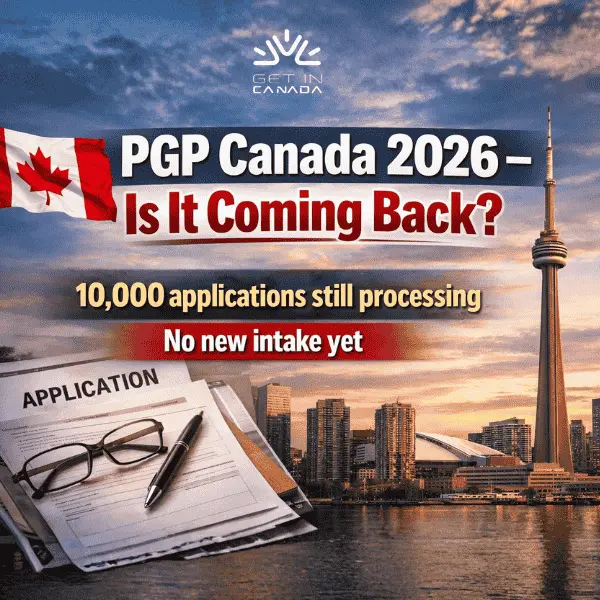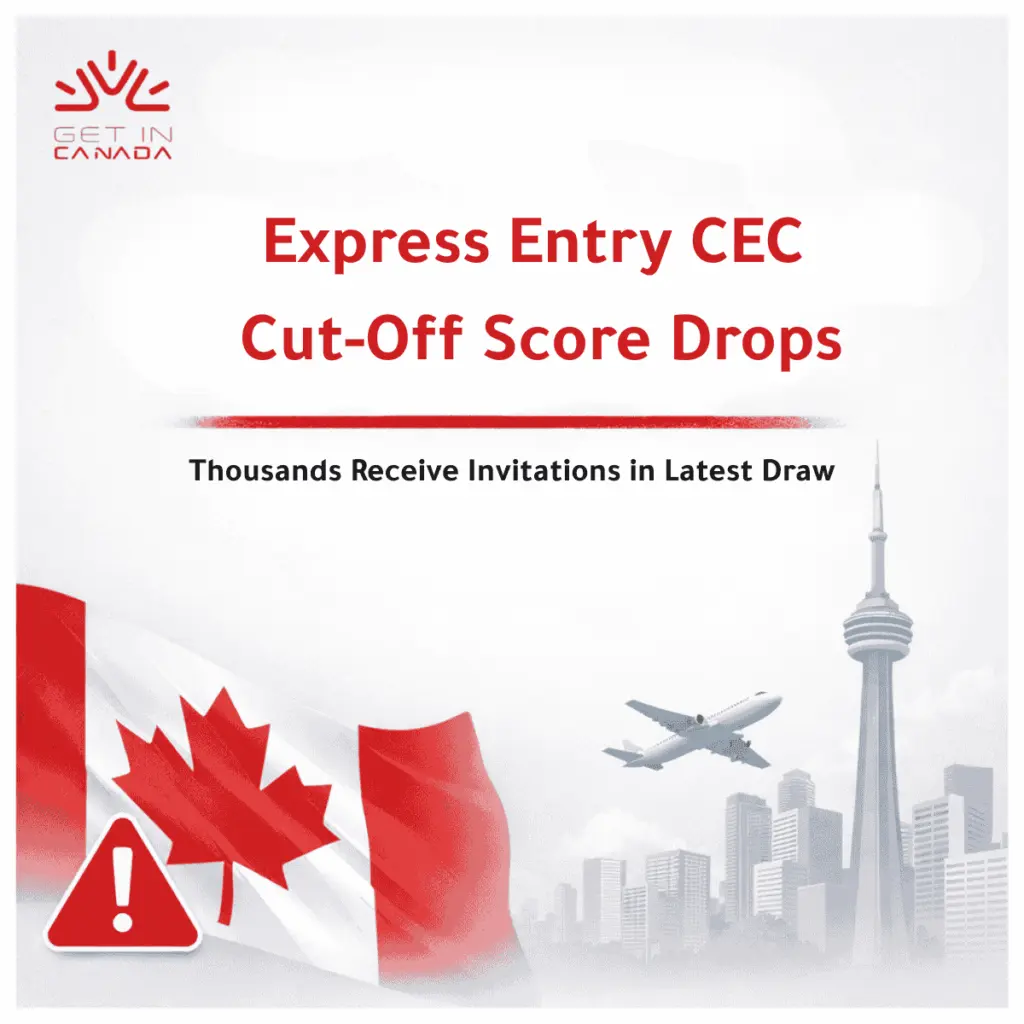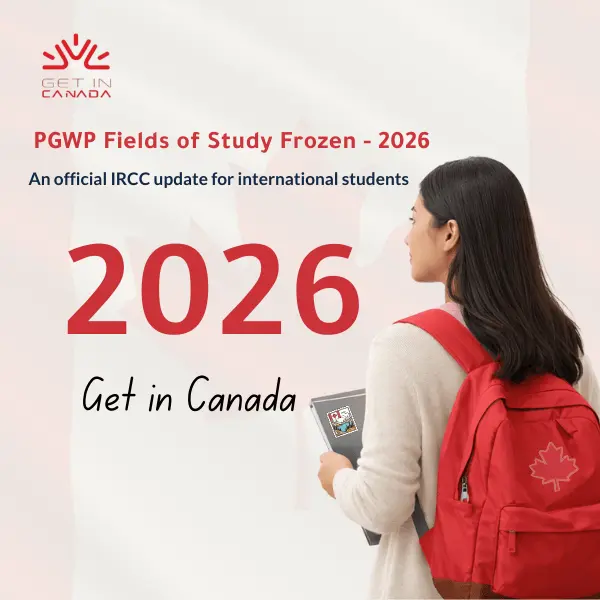Changes to PGWP eligibility if you consider working in Canada after graduation
IRCC revealed new updates regarding the programs eligible for a Post-Graduate Work Permit (PGWP) in September. These updates state that some international students at various levels of study will have to meet additional study criteria if they apply for a work permit through the PGWP after November 1st. In this blog, we’ll explore these changes and how they may affect students who want to work in Canada after graduation.

Key changes in PGWP eligibility
In the following, we’ll discuss the key changes in the eligibility:
- Who is impacted?: International graduates from specific fields of study at different education levels.
- Who is exempt?: Graduates with a bachelor’s, master’s, or PhD from a university (field of study requirements do not apply to them).
New rules state that applicants must meet certain field of study requirements that align with Canada’s job market needs. These rules will start being applied on November 1st.
If you’re planning to study in Canada, these changes mean that your program of study must be in one of the eligible fields if you are not exempt.
Find out if you are eligible to get in Canada →
What are the new eligibility requirements for the PGWP?
Whether you are applying for the PGWP now or after November 1st, you must meet the following language requirements.
Language requirements differ whether you graduated with a bachelor’s degree, master’s degree, doctoral degree, other university program, college program, or any other program that was not mentioned above, and here is detailed information about the language requirements for each degree or program:
- Bachelor’s, Master’s, or Doctoral Degree: CLB 7 in English or NCLC 7 in French (all four skills)
- Other University Programs: CLB 7 in English or NCLC 7 in French (all four skills)
- College or Other Programs: CLB 5 in English or NCLC 5 in French (all four skills)
If you’re graduated with a bachelor’s, master or doctoral degree all fields are eligible, but if you are graduated from any other program or college the field of study must be in an eligible field.
These requirements are applied to applicants who will start to apply for a PGWP after the 1st of November.
What are the eligible fields of study for PGWP?
Canada’s new PGWP rules focus on filling gaps in the job market. The five fields in focus are:
- Agriculture and Agri-Food
- Healthcare
- Science, Technology, Engineering, and Mathematics (STEM)
- Trades
- Transport
Canada is facing labour shortages in the previous fields, these fields are categorized using Canada’s system for classifying education programs, known as the Classification of Instructional Programs (CIP).
Examples of eligible programs
Here are some examples of eligible programs within each field:
- Agriculture and Agri-Food
- Agricultural Business and Management (CIP Code: 01.0101)
- Animal Health (CIP Code: 01.0903)
- Agribusiness/agricultural business operations (CIP Code: 01.0102)
- Farm/farm and ranch management (CIP Code: 01.0104)
- Healthcare
- Special Education and Teaching (CIP Code: 13.1001)
- Exercise Physiology (CIP Code: 26.0908)
- Veterinary sciences/veterinary clinical sciences, general (Cert., MS, MSc, PhD) (CIP Code: 01.8101)
- Comparative and laboratory animal medicine (Cert., MS, MSc, PhD) (CIP Code: 01. 8102)
- STEM
- Chemical Engineering (CIP Code: 14.0701)
- Computer Graphics (CIP Code: 11.0803)
- Agricultural and extension education services (CIP Code: 01.0801)
- Agricultural communication/journalism (CIP Code: 01.0802)
- Trades
- Electrician (CIP Code: 46.0302)
- Insulator (CIP Code: 46.0414)
- Heating, ventilation, air conditioning, and refrigeration engineering technology/technician (CIP Code: 15.0501)
- Welding engineering technology/technician (CIP Code: 15.0614)
- Transport
- Air Traffic Controller (CIP Code: 49.0105)
- Truck and Bus Driver (CIP Code: 49.0205)
- Public transportation and infrastructure planning/studies (CIP Code: 44.0403)
- Heavy equipment maintenance technology/technician (CIP Code: 47.0302)
Note: This list isn’t a full list of all the programs, so get back to the IRCC’s website for the full program list.
You can check the CIP code for your field by clicking here and typing the program name in the search bar to know the CIP code. After identifying the general field of your subject matter, look at the sub-branches of your identified field.
Understanding your CIP code is important because it helps determine your eligibility for a PGWP based on your field of study.
Why are the new changes important?
International students have to pay attention to choosing high-demand sectors such as health, science, technology, engineering, and any trade, as these fields speed up the process of getting permanent residence and work permits in Canada.
Also, universities and colleges will require restructuring of some of the programs they offer as international students will probably avoid programs that will not lead to a job in Canada.
How do these changes affect Canada’s job market?
New rules for the PGWP are only one stage in Canada’s grand strategy of aligning immigration policies with the economy. Through positive messages about studying in fields where Canadians do not want to work, Canada targets the attraction of international students as a solution to the most significant labour shortage sectors, including healthcare, skilled trades, etc., that are important for the economy in the long run.
Positive Impact on Graduates
Graduates in programs that are in high demand should not have a hard time finding jobs in Canada whenever they complete their studies. They will also be well-placed to apply for a permanent residency via programs like Express Entry, for instance.
Long-Term Immigration Strategy
All these changes are part of Canada’s plans for the use of immigration in the country for a long time. Most of the international graduates who are issued with PGWPs turn into permanent residents, and this is helpful to Canada as they retains hard-working workers in its economy.
Canada is revealing these new updates as opportunities and challenges for international students. Students who choose the program they apply for properly improve their chances of being permanent residents and also getting PGWP.
Choosing the right program and meeting the new criteria is very important to improve your chances of living and working in Canada legally. To learn more, go to the IRCC page or search the 2021 Classification of Instructional Programs (CIP) to determine if your program is qualified.











